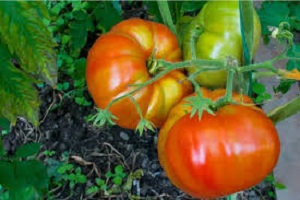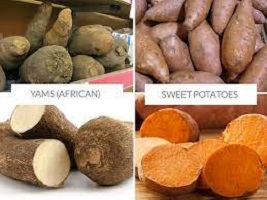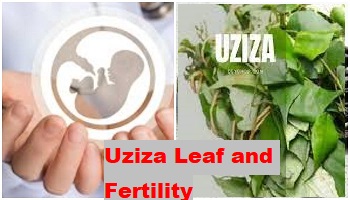Health Benefits of Jute Leaf Popularly Known As ‘Ewedu’
Health Benefits of Jute Leaf Popularly Known As ‘Ewedu’

Jute leaf, also known as ‘Ewedu,’ is a slimy edible leafy vegetable. It contains a lot of minerals, vitamins, and antioxidants.
Iron, calcium, sodium, phosphorus, potassium, proteins, fibers, vitamins A, C, and E, riboflavin, niacin, and folate are also present.
These are nutrients that aid the body’s ability to fight disease and stay healthy.
Ewedu Leaf is one of many vegetables used to make soups, particularly by Nigeria’s Yoruba people.
It is commonly consumed as a soup in Asia and parts of Africa. Gbegiri soup and Amala, which are native to Ibadan in Oyo State, South-West Nigeria, are a popular combination.
Also known as Achingbara in Igbo, Rama in Hausa, or Jute leaves in English.
Corchorus Olitorius, molokhia leaves (in Egypt and other northern Africa), saluyot (in the Philippines and other southern Asian countries), and Jews mallow are all botanical names for ewedu leaf.
Health Benefits of Jute Leaf ~ How to prepare Ewedu for fertility
Cooking Directions
- Firstly, clean your ewedu by rinsing it in clean water.
- Then, add the remaining ingredients to the blender along with the water and blend until the desired consistency is achieved.
- After that, pour it into a clean cup and enjoy this delicious smoothie.
- Lastly, consume at any time of day.
Ewedu leaf and fibroid ~ Is ewedu good for fibroids?
To be sure, ewedu is very tasty, but aside from cooking and eating it, it is also a cure for many diseases in the body.
For example, ewedu can be used to treat high blood pressure, facilitate delivery, treat malaria, shrink fibroid, unhealed wounds, treat mouth odor, and so on.
Ewedu leaf spiritual benefits ~ Health Benefits of Jute Leaf (Ewedu
Ewedu leaf, as it is commonly known among Yorubas, contains antioxidants that aid in the fight against free radicals.
Face masks can be made from ewedu leaves. The leaf extracts are also known to be used in beauty products such as creams.
Furthermore, this vegetable is excellent for skin care.
It contains vitamins that are extremely beneficial as antioxidants.
Health benefits of drinking Ewedu leaves? Is it safe to drink raw Ewedu?
Ewedu is beneficial for weight loss due to its low calorific content, and it also helps to strengthen the immune system, combat stress, and prevent heart disease.
Ewedu is a traditional medicine used to treat aches and pains, dysentery, enteritis, fever, dysentery, pectoral pains, and tumors.
What role does the Ewedu leaf play in the body?
It contains vitamins that are extremely beneficial as antioxidants. Ewedu’s essential fatty acids can keep skin moisturized.
Similarly, it prevents water loss through the skin, reducing wrinkles, which are the primary cause of aging.
Male fertility and ewedu leaf
Improves Fertility;
According to one study, Ewedu has significantly more folic acid than other folacin-rich vegetables.
Jute Leaf Health Benefits ~ Is jute leaf good for fertility?

Vitamins E, A, and C are abundant in jute leaves. These three nutrients are potent antioxidants that shield cells from free radical damage.
The antioxidants in these leaves can help with vision and fertility, among other things.
How can I increase my husband’s fertility?
Simple steps to improve the likelihood of producing healthy sperm include:
- Keep a healthy weight. According to some studies, increasing body mass index (BMI) is associated with decreased sperm count and movement.
- Maintain a healthy diet.
- Reduce the risk of sexually transmitted infections (STIs)
- Cope with stress.
- Get your feet moving.
The side effect of Ewedu
Some bacteria in Ewedu are extremely dangerous if consumed. They can cause stomachaches, diarrhea, constipation, and other diseases in the body.
What are the side effects of jute leaves?
The disadvantages of eating jute leaves
The body’s immune system reacts in these cases, resulting in hives, swelling of the mouth or lips, and respiratory problems.
While jute leaves aren’t one of the top food allergens, it’s best to avoid them if you have any side effects after eating them.
Ewedu and menstrual cycle
Similarly, Ewedu aids in PMS (premenstrual syndrome); PMS is a symptom of a disturbance experienced by a woman that causes an emotional change. Besides, this vegetable effectively alleviates PMS symptoms and maintains a regular menstrual cycle.
Health Benefit of Eating Ewedu Soup – Jute Leave;
Health Benefits of Jute leaf soup and why you should be eating Ewedu leaf.
Ewedu soup is a popular Yoruba delicacy made with Jute leaves.
It’s a slimy, delicious soup that goes well with Amala and Stew and can be topped with beef, chicken, fish, or kpomo.
Similarly, Ewedu leaf soup promotes fertility and can be consumed raw in a smoothie with other fruits.
Ewedu is highly recommended for pregnant women, and some people drink raw Ewedu for a healthy lifestyle.
Health Benefits of Jute Leaf ~ Amazing Health Benefits of Ewedu Soup
- Maintain blood pressure stability
- Aids in weight loss
- It slows down the aging process.
- Bones and teeth should be strengthened.
Ewedu leaf health benefits for pregnant women
Ewedu leaves are used by pregnant women, particularly those who have a long labor before delivery.
At this point, fresh saluyot leaves are quickly squeezed to extract juice for drinking.
The most recent discovery is that Jute leaf improves milk secretion in breastfeeding mothers.
Fertility Benefits of Ewedu Leaf
These leaves’ antioxidants can help with vision and fertility, among other things.
The mother’s pain can be relieved and her stamina increased by the vitamin E in ewedu.
Ewedu has long been used as a remedy for pregnant women who have been in labor for a long time.
Is jute leaves good for fertility? Benefits of jute leave
Vitamins E, A, and C are abundant in jute leaves. These three nutrients are potent antioxidants that shield cells from free radical damage.
These leaves’ antioxidants can also help to improve vision and fertility, among other things.
Is Ewedu a fertility booster?
Improves Fertility
According to one study, Ewedu has significantly more folic acid than other folacin-rich vegetables.
It contains approximately 800 micrograms per 100g (approximately 75% moisture) or approximately 3200 micrograms on a zero moisture basis.


